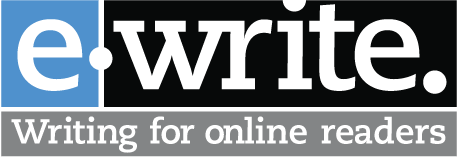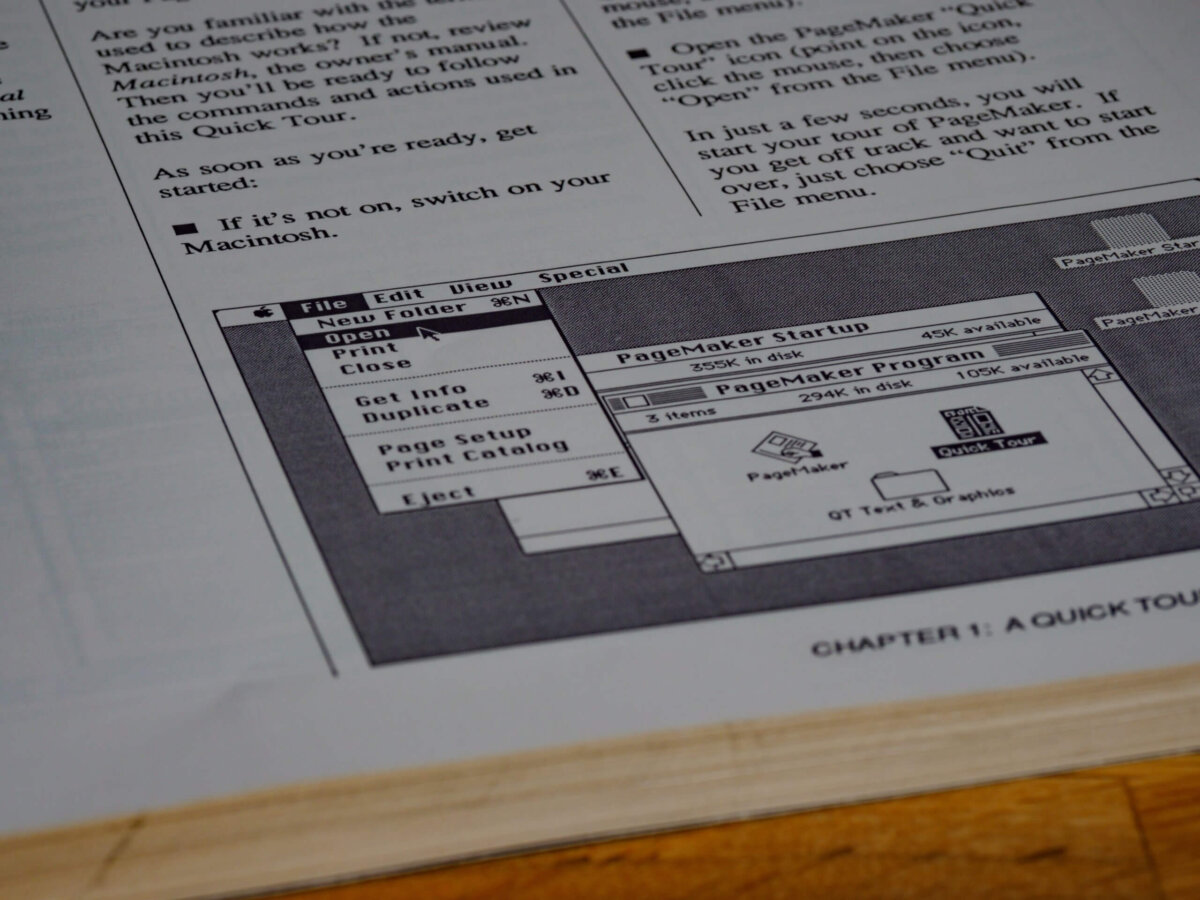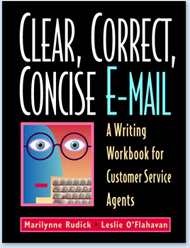 I’m honored to re-post this blog by my friend and colleague Kim Bieler, UX team manager at FireEye and blogger at UXResume.com. (And it’s not just because she interviewed me and made me sound smarter than I am!)
I’m honored to re-post this blog by my friend and colleague Kim Bieler, UX team manager at FireEye and blogger at UXResume.com. (And it’s not just because she interviewed me and made me sound smarter than I am!)
Why are resumes so hard to write? A conversation with Leslie O’Flahavan
If you’ve been following this blog, then you know one of my common complaints is that UX resumes are poorly written. They not only suffer from typos and grammatical errors, they’re rife with banalities, awkward prose, and poorly expressed ideas. To understand why this is so, I talked to my good friend and former client, Leslie O’Flahavan from E-WRITE.
Leslie has more than 30 years’ experience teaching students and professionals how to write effectively. In person, she’s down-to-earth and full of droll observations—even on short acquaintance she makes you feel like you’ve been friends since high school.
In our conversation, she quickly got to the heart of why writing resumes is so difficult. Her insights challenged me to think harder about the purpose of the resume and about how to make the hiring experience more transparent and satisfying for job-seekers.
Resumes really are the worst kind of writing
If you find writing a resume to be hateful drudgery, or you feel like it’s impossible to represent yourself properly in the confines of such a formal document, or you hate the way you sound in your resume—you’re not alone. And the good news is, it’s not your fault!
According to Leslie, “A resume is the worst interaction of all the worst conditions to produce good writing.”
She went on to identify six reasons why the resume (and the hiring process in general) conspires to undermine our confidence and ability to write effectively.
1. It’s difficult to know what the hiring manager wants
Unlike other kinds of professional writing—for example, grant applications or proposals—the person or organization you’re making the application to is usually very clear about what they want. On the other hand, “The person who’s reviewing your resume—this person is a stranger, usually, with one-slash-of-the-pen power over you, and has not explained what he or she wants. So it’s very hard to do a good job. You don’t know what the person wants, so how do you know what would work?”
The most you have to go on is a job description, but a job description is a wish-list of skills, characteristics, and experiences—it’s doesn’t tell you what the hiring manager is expecting in a resume or how they are going to evaluate you. You can guess at what they want, but that’s all it is, a guess.
2. Successful examples are hard to find
We very rarely get to see other people’s resumes. Particularly not the resumes of people we admire, or people who successfully got the job before us. And as Leslie pointed out, “Everyone around you whom you respect is equally clueless. If we were writing a proposal to the National Science Foundation to fund a project, we would at least be able to meet some people who applied for the money and got it. We might be able to see their application, their proposal. With the resume, no-one else knows, either. So you can’t count on any experienced wisdom.”
I would add that, even if you were to see the resume of a successful hire, it’s just as likely they got hired in spite of their resume than because of it.
3. You can’t rely on advice
How many of us learned that the resume has to include an objective? Now, the objective is universally reviled and can often count against you. “Everything we hold as a stone cold fact about writing resumes, the next person over contradicts. So again, how are you going to do a good job?”
In this blog, I advise readers to think twice about executive summaries, but many other blogs will tell you they’re a must-have. Who’s right? Are you going to hurt your chances at a job if you follow one piece of advice over another?
4. There’s often no feedback
Most of the time when you submit a resume for a job you hear nothing. Nada. Not a squeak. You don’t know whether your resume was received by the hiring manager or whether it got lost in the computer system. You don’t know if HR rejected your resume before it ever got to the hiring manager’s desk, or the hiring manager did get it, but took one look at it and threw it in the trash. Or perhaps she read it carefully and filed it away for the future. There’s no way to know.
“You know whether you got the job, or didn’t get the job, or got an offer. But you have no idea what role your resume played in getting that offer. Most job application processes don’t depend on the resume alone. You don’t know, was it 12% or 30% of the decision?”
Did you get an interview in spite of your resume or because your resume was exactly what the hiring manager was looking for?
5. It’s a difficult kind of writing
I cracked up when Leslie pointed this out: “The culture of writing resumes is to inflate your credentials, and once you introduce that kind of inflation, it’s very hard for writers to hover between honesty and bullshit.”
This is where I see UX designers getting into the most trouble. Half of the typical resume is dry responsibilities with no discussion of individual accomplishments or results. The other half is marketing copy that ham-handedly tries to convey the candidate’s passion, beliefs, and personality. It’s obvious that people are uncomfortable with this kind of writing since it often comes across awkward and dull, or cocky and pretentious.
I confess, I felt a little guilty for all my ragging in this blog about the sorry state of UX resumes when Leslie pointed out that nobody intends to write a bad resume. Well all start out with good intentions and the wish to succeed, but good intentions don’t always translate into good results. Or, as she described it, “It’s like when you dance at a party. You don’t want to go up there and look like a fool, but sometimes you do. You just bring what you have and try to make it work with the music, you know? And sometimes it’s horrible looking—but you’re not trying to look horrible, you’re trying to look decent.”
Most people don’t enjoy writing their resume. They dread it. They struggle over what to say and how to say it well. For all the reasons mentioned above, it’s easy to second-guess everything you write. Am I demonstrating the right experience? Do I look senior enough? Do I look overqualified? Are my weaknesses obvious? Is my previous career in sales going to help me or hurt me?
Uncertainty and doubt are hardly a recipe for effective writing. Or good dancing.
6. It’s easy to be skeptical that the resume matters
Given the glut of open positions in UX and the fact that designers often get hired despite their sloppy resumes, it’s not unreasonable to question if it’s worth putting in the effort to make your resume great. Furthermore, the resume is “…like the mayonnaise of documents because you can’t leave it, it’s going to spoil. It doesn’t have a long shelf-life. That makes another reason it’s a hated thing to write.”
My feeling is that there is value in the process of creating a resume because even if you’re applying for a job that doesn’t ask for one, you still need to be able to talk about your accomplishments and results in the phone screen or interview. Spending the time to analyze what you’ve done in your current job, how you did it, and how well it turned out is time well spent preparing you for a job search.
Looked at cynically, the resume is what allows hiring managers to reject candidates without having to spend an hour talking to each one. It’s a process that probably generates false negatives, but it’s the one we have and for the time being, your best bet is to at the very least eliminate the most common reasons for rejection.
Where do we go from here?
When you realize all the reasons that resumes suck, the obvious questions is, why are we putting people through this agony? Surely, there must be a better hiring process out there that lets designers present their best selves, and allows hiring managers to quickly weed out inappropriate candidates. I’ll be delving into this question in upcoming blog posts.
— — — — — — — — — — — — — — — — — — — — — — — — — —
 Read more of Kim Bieler’s blog posts at UXResume.com
Read more of Kim Bieler’s blog posts at UXResume.com
- The executive summary: Energy misdirected
- “Expertise”? I don’t think so
- Writing accomplishments: What you did
- Wireframes are not an accomplishment
- Less wanting, more doing
- The objective statement, aka “I want a job”
- Avoid the #1 reason for rejection
- Cut to the chase: one page is best
- Why managers are looking for top performers
- It’s better to reject than hire poorly
- 5 reasons why infographics are a bad idea







0 Comments